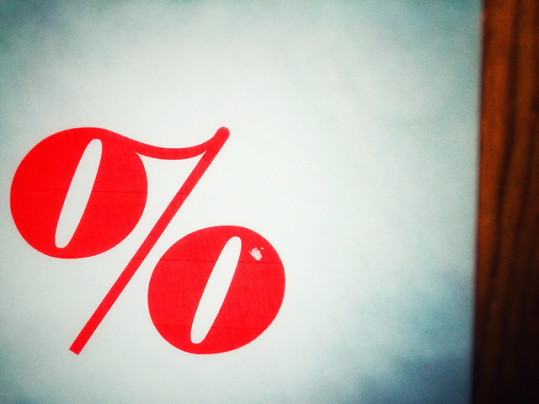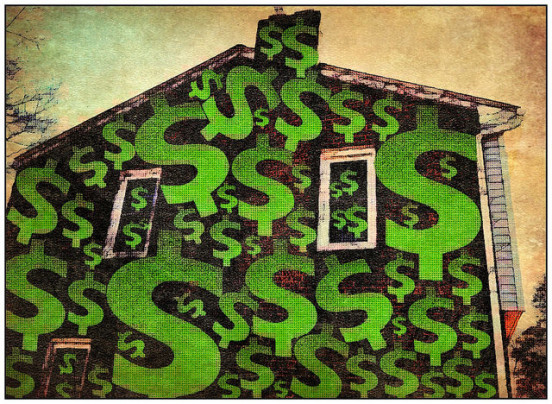According to the Mortgage Bankers Association’s Weekly Applications Survey, average mortgage rates were up and down last week. For example, rates for 30-year fixed-rate loans with conforming balances fell, while jumbo loans moved up slightly. On the other hand, mortgages backed by the Federal Housing Administration saw a decline and rates for 15-year fixed-rate loans were unchanged from the week before. But despite the fact that rates remained within a fairly steady range last week, demand for mortgage applications was down overall. Refinance activity fell to an eight-year low – mostly due to mortgage rates moving higher over the past few months. At the same time, purchase activity is 3 percent higher than it was at the same time last year, though down from the week before. In other news from the MBA, mortgage credit availability increased for the fifth consecutive month in January. That’s good news for prospective buyers. When lending standards are easing, it makes it more likely that qualified home buyers will be approved for a loan. The MBA’s weekly survey has been conducted since 1990 and covers 75 percent of retail residential mortgage applications. More here.
Archive for February 2017
Homeowners Often Overestimate Their Home’s Value
For home buyers and sellers, appraisals are important. They represent an official reading of what a particular property is actually worth, as opposed to what its owner hopes to sell it for. Based on similar properties in the same area, an appraiser will look at a house, compare it to recently sold homes in the neighborhood, and determine what the home’s current market value is. Of course, their estimation may catch the current owner by surprise if it comes in either higher or lower than they expected. And, according to one index that tracks price perceptions, they often do. In fact, Quicken Loans’ Home Price Perception Index found the average appraisal value was 1.47 percent below homeowners’ estimates when looked at nationally, though that percentage varies widely depending on where you look. For example, in many western cities – including Denver, Portland, San Francisco, and Los Angeles – appraised values were as much as 3 percent higher than homeowners estimated, while appraisals came in below expectations more often in cities on the East Coast and in the Midwest. If you’re selling, refinancing, or buying a home, it’s a good idea to familiarize yourself with what homes are currently selling for in your area. That way, if and when you call for an appraisal, you’ll be less likely to end up surprised by the result. More here.
How Your Pets Influence What Home You Buy
Most people treat their pets like they’re a member of the family. In fact, a recent survey from the National Association of Realtors, found a full 99 percent of pet owners agreed their animals were considered part of their family. And a lot of us have them. William E. Brown, NAR’s president, says a majority of Americans have a pet or are planning on getting one. “In 2016, 61 percent of U.S. households either have a pet or plan to get one in the future, so it’s important to understand the unique needs and wants of animal owners when it comes to homeownership,” Brown said. “Realtors understand that when someone buys a home, they are buying it with the needs of their whole family in mind; ask pet owners, and they will enthusiastically agree that their animals are part of their family.” So, if pets are thought of as family members, it shouldn’t come as any surprise that they play a large role in how Americans make decisions about buying or selling a house. But what are some of the things a prospective home buyer might be looking for specifically to accommodate their furry friends? According to the survey, a fence around the yard is the top priority for pet owners, though a dog door and laminate flooring also ranked high. More here.
February Named Best Month To Find A Bargain
If asked, most people would name spring or summer as the best time to shop for a house. After all, those are typically the busiest seasons for house hunting, regardless of what part of the country you look at. There are a few reasons for this – including the school year, weather, summer vacations, and a general sense of starting anew. However, new numbers from ATTOM Data Solutions might make you question conventional wisdom on the subject. That’s because, after analyzing 16 years worth of data covering 50 million home sales, they found February is the best month to buy a house at a discount. In fact, their analysis shows homes sold during the month went for 6.1 percent less per square foot than the rest of the year on average. By comparison, April home sales numbers show more than a million more homes sold but at a median price just 1.8 percent below the annualized sales price. In other words, if you’re looking to buy a house and are hoping to find a great deal, now may be the best time to start hunting. And, in addition to being the best month to find a bargain, February also registered the top five days for buying a home at the biggest discount. More here.
59 Million Americans Say They Want To Buy
A recent survey conducted by Princeton Survey Research Associates says 59 million Americans are considering buying a home this year. That’s roughly one in four adults. Conducted on behalf of Bankrate, the survey shows the strongest demand among parents with young children and adults between the ages of 27 and 52 – not surprising considering the lower-than-usual number of first-time home buyers active in the market over the past few years. Holden Lewis, a mortgage analyst with Bankrate, says there’s a lot of pent-up demand among younger buyers. “They have been stymied by stagnant wages, student loans and a lack of available starter homes,” Lewis said. “If enough affordable homes are put on the market, we might see a surge of first-time home buyers in their early to mid-30s.” That, however, is the big question for home buyers this year. Will there be enough affordable homes on the market to support the increasing number of interested buyers? There have been signs recently that home builders are beginning to build smaller, more affordable homes but, without a spike in the number of Americans hoping to sell their homes, buyers may face another competitive spring market this year. More here.
Mortgage Rates Dip Within Narrow Range
According to the Mortgage Bankers Association’s Weekly Applications Survey, average mortgage rates moved lower last week across all loan categories. Rates were down for 30-year fixed-rate loans with both conforming and jumbo balances, loans backed by the Federal Housing Administration, and 15-year fixed-rate loans. Since the beginning of the year, mortgage rates have been up and down but have remained within a narrow range. They are still lower than historically normal, though they are up from where they were at the same time last year. Also in the report, mortgage application demand moved up after last week’s decline. The refinance index – which is typically more sensitive to rate fluctuations – increased 2 percent from the week before. The seasonally adjusted purchase index also saw a 2 percent bump and is now 4 percent higher than it was one year ago. As the spring season approaches, demand for loans to buy homes should begin to rise, as prospective buyers who hope to beat the spring rush start shopping for a house to buy. The MBA’s weekly survey has been conducted since 1990 and covers 75 percent of all retail residential mortgage applications. More here.
Will Wage Increases Offset Affordability Worries?
Buying a home is not something many people do without weighing the pros and cons. After all, there are a lot of factors that play into whether or not a homeowner decides to sell their house or a renter makes the jump and buys a home of their own. Mortgage rates, home prices, employment conditions, and personal finances can all play a role for Americans deciding whether or not to enter the housing market. For this reason, Fannie Mae’s monthly Home Purchase Sentiment Index measures how consumers are feeling about their financial situation and the real-estate market in an effort to gauge overall optimism and how likely Americans are to buy or sell a home this year. In January, the index moved up after five consecutive months of decline. The bump in optimism was mostly related to an increasing sense of job security and a spike in the number of respondents who said their household income is significantly higher than it was at the same time last year. Doug Duncan, Fannie Mae’s senior vice president and chief economist, says optimism about economic conditions is high but whether that means more home buyers and sellers this spring remains to be seen. “Any significant acceleration in housing activity will depend on whether consumers’ favorable expectations are realized in the form of income gains sufficient to offset constrained housing affordability,” Duncan said. More here.







